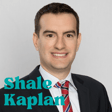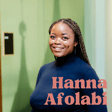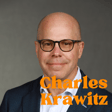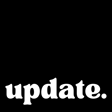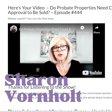
Russell C. Aivazian, M.Ed: Director of Early Career Recruiting at Jones Lang LaSalle (JLL)
Russell is a passionate recruiting leader and talent strategist dedicated to empowering individuals and organizations to unlock their full potential. With nearly 10 years of experience in the university administration space, he thrives on cultivating the next generation of recruiting leaders, leveraging data-driven insights to optimize processes and drive better outcomes for internal stakeholders and applicants alike.
Currently serving as the Director of Early Career Recruiting at JLL, Russell oversees the recruitment and support of more than 500 summer interns. Additionally, he provides consulting services to executive-level leaders, offering insights on Early Career/Gen Z talent and helping them achieve their diversity, equity, and inclusion (DEI) goals.]
This is a fantastic episode dedicated not only to understanding what the career trajectory of a successful corporate recruiter can look like, but about the commercial real estate hiring process as a whole! It is chock-full of insights about experience and resume cultivation, interview presentation, networking with would-be coworkers, and so on. Enjoy...and take notes! :)

